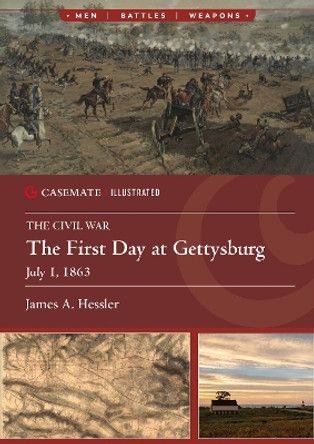By late January of 1863, the 9th Massachusetts Battery of Light Artillery has been stationed within the Washington, D.C. defenses the entirety of its five-month existence. The soldiers are badly demoralized, inadequately trained and poorly disciplined. When the inept captain of the battery believes that he's about to be fired, he hastily resigns, and the governor of Massachusetts promptly selects a twenty-three-year-old artillery officer with battlefield experience to take command. Captain John Bigelow institutes strict discipline and rigorous training which causes the men, including Chief Bugler Charles Wellington Reed, to consider him to be a heartless tyrant. However, Captain Bigelow's methods rapidly improve their capabilities and Reed reluctantly gains respect for the new captain. Nevertheless, subtle conflict between captain and bugler remains in a manner only constrained by military protocol. In late June of 1863 the battery is collected by the Army of the Potomac as it passes the Washington defenses to thwart an invasion by Robert E. Lee's Army of Northern Virginia. After days of hard marching, Bigelow's Battery arrives on the Gettysburg battlefield in the forenoon of July 2, 1863. Within hours they are immersed in violent combat during which the officers and men of the battery fight like veterans against the Confederates. Unbeknownst to Charlie, he will twice disobey a direct order from Captain Bigelow before the day is out. When furious fighting reaches a crescendo, the inexperienced light artillery battery is ordered to hold its position at all hazards, meaning until it's overrun. Without hesitation the batterymen stand to their guns and sacrifice their life's blood to gain the time necessary for a second line of artillery to be formed behind them, thus helping to prevent a disastrous defeat for the Federal Army on Northern soil. Charlie saves his captain's life and is later awarded the Medal of Honor.
About the AuthorDavid H. Jones, born and raised in West Virginia, is a lifelong student of the American Civil War. He is the author of the historical novel Hold At All Hazards: Bigelow's Battery At Gettysburg July 2, 1863 to be released by Casemate Publishers in mid 2021 and Two Brothers: One North, One South, an award-winning historical fiction published in 2008. David's approach to storytelling is to use original source material and the writings of actual participants and contemporary observers in crafting an accurate portrayal of real people and events. By this distinctive means the reader may enjoy an exciting story that reveals fascinating details and realities that have often been misinterpreted or ignored by historians. A graduate of Kentucky Military Institute and Babson College, a former Navy officer, entrepreneur and business executive, he currently resides and writes in Denton County, Texas.
ReviewsJones grounds his overall story within a landscape of the times within the historical record. While the author's imagination and literary prowess are clearly at the forefront, so too are the words and actions of long-passed participants. * Historical Novels Review *
Like the other novels in the Casemate series, it's all exceptionally realistic in terms of historical accuracy. After reading this, it seems like you will know everything there is to know about operating an American Civil War artillery piece and battery. * The Historical Miniatures Gaming Society *
Book InformationISBN 9781636240602
Author David H. JonesFormat Paperback
Page Count 272
Imprint Casemate PublishersPublisher Casemate Publishers





